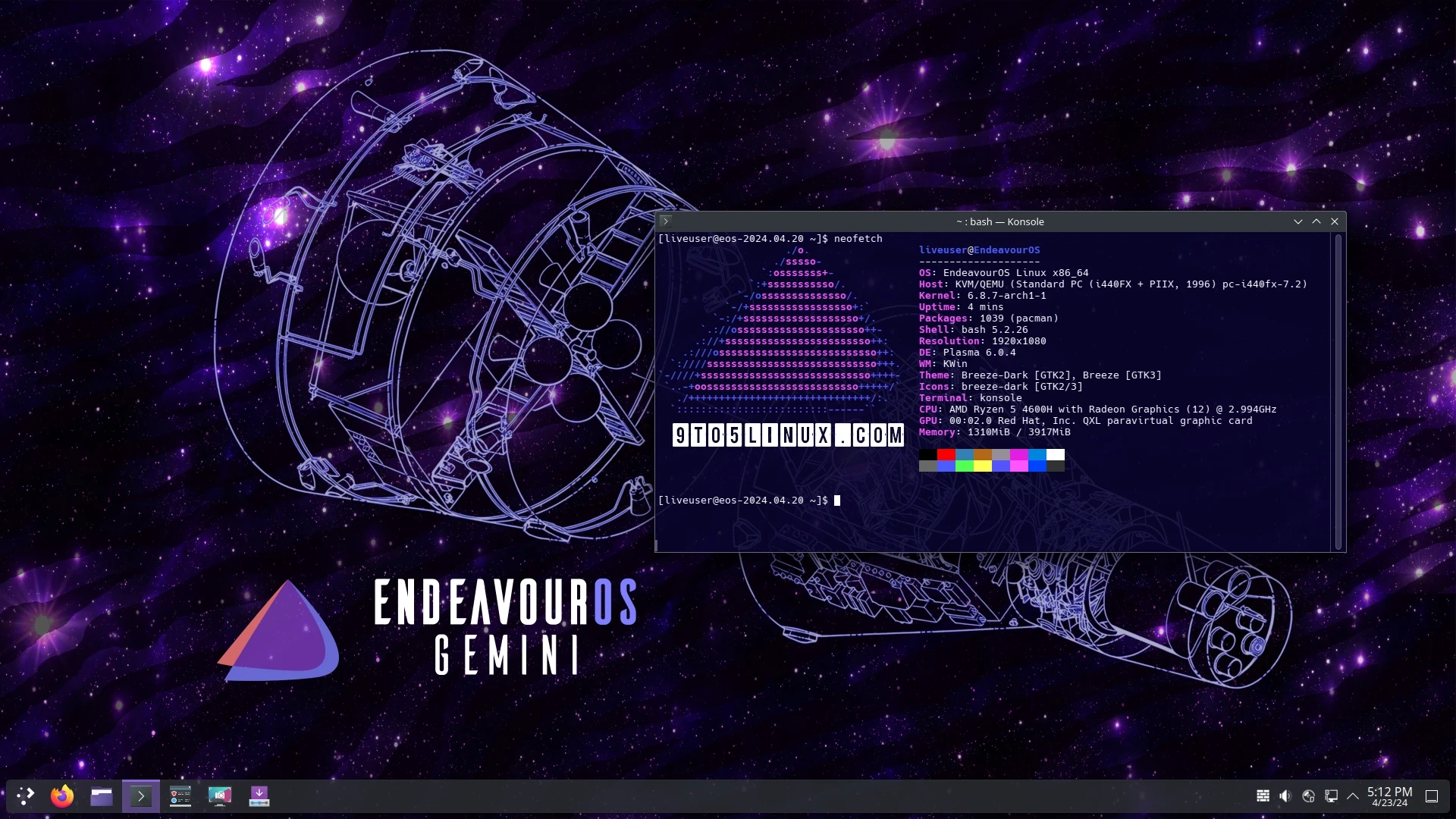The EndeavourOS team announced today the release and general availability for download of EndeavourOS Gemini as the latest stable version and the first release of the Arch Linux-based distro to feature the latest KDE Plasma 6 desktop environment.
Powered by Linux kernel 6.8, EndeavourOS Gemini comes with the KDE Plasma 6 desktop environment on both the live environment and the offline installation option. Users can choose between Wayland and X11 sessions from the SDDM login manager, but the former is enabled by default.
This release also switches from the nvidia-dkms driver to the proprietary NVIDIA graphics driver to prevent freezing issues with the live environment when NVIDIA boot is selected, removes the ARM installation option, adds the GParted partition editor to the live ISO, and removes the EOS update notifier from the default installation list.
“The road to Gemini, named after the NASA program that was a bridge between the Mercury and the Apollo missions, was a real journey for our developing team but they got the release in top shape with an endless perseverance in a relatively short time,” said EndeavourOS founder Bryan Poerwoatmodjo.
Among other noteworthy changes, EndeavourOS Gemini updates the Welcome Updater and eos-bash-shared tool to use the GNOME terminal app by default when GNOME is selected during the installation, adds new options to the eos-update tool, adds URL expiration support and a warning about sending sensitive data to the eos-sendlog tool, and adds experimental support for the doas command.
Under the hood, this release comes with the latest Mesa 24.0 graphics stack and includes a newer Calamares graphical installer for a smoother installation experience. It also includes some of the latest Open Source apps, such as the recently released Mozilla Firefox 125 web browser.
EndeavourOS Gemini is available for download right now from the official website. Since EndeavourOS follows a rolling-release model where you install once and receive updates forever, existing users need only to update their installations by running the sudo pacman -Syu command in the Terminal app.
Last updated 6 hours ago
